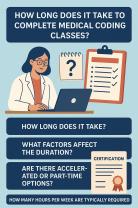Is it hard to achieve a PhD in physics?
Yes, earning a PhD in physics is undoubtedly challenging, but it can also be highly rewarding for those with a passion for the subject. Here are some key aspects to consider regarding the challenges and rewards of pursuing a PhD in physics:
Challenges:
Rigorous Academic Demands: A PhD program in physics involves advanced coursework and research that can be extremely demanding. You'll need a strong foundation in mathematics and physics to succeed.
Intensive Research: A significant portion of your doctoral program will be dedicated to original research. This requires critical thinking, problem-solving skills, and the ability to design and execute experiments or simulations.
Long Duration: PhD programs in physics often take several years to complete, typically around 4-6 years, sometimes longer. The extended duration can be mentally and financially challenging.
Work-Life Balance: The workload and pressure can be intense, which may impact your work-life balance. It's important to manage your time effectively and maintain a support system to cope with the demands.
Competitive Environment: The field of physics is highly competitive, and securing funding, publishing research, and standing out can be challenging. You'll be surrounded by talented peers, which can be both motivating and intimidating.
Comprehensive Exams: Many PhD programs require comprehensive exams to assess your knowledge of various physics subfields, which can be stressful and require extensive preparation.
Thesis Defense: Completing a PhD involves defending your original research in front of a committee of experts. This can be a nerve-wracking experience, but it's also a significant accomplishment.
Rewards:
Intellectual Fulfillment: Pursuing a PhD in physics allows you to dive deep into a subject you're passionate about. You have the opportunity to explore uncharted territories, conduct groundbreaking research, and contribute to human knowledge.
Career Opportunities: A PhD in physics opens doors to various career options, including academia, research institutions, government agencies, and the private sector. Physicists are in demand for their problem-solving and analytical skills.
Personal Growth: The journey toward a PhD involves personal and intellectual growth. You'll develop skills in critical thinking, data analysis, and communication.
Impactful Research: As a physicist, you may have the chance to work on research that can lead to significant technological advancements or a better understanding of the universe.
Potential for Innovation: Physicists often work on interdisciplinary projects that can lead to innovations and advances in technology, medicine, and other fields.
Teaching Opportunities: If you enjoy teaching, a PhD in physics can lead to opportunities for educating the next generation of scientists and contributing to science education.
Contributions to Society: Your research may have broader implications for addressing global challenges in areas like renewable energy, climate change, healthcare, and more.
In summary, pursuing a PhD in physics is challenging and requires dedication, but it can be a deeply fulfilling journey for those with a genuine interest in the subject. The challenges are balanced by the intellectual growth, research opportunities, and potential for making a positive impact on science and society. Ultimately, whether or not it's "hard" is a subjective assessment, but the rewards can make the journey worthwhile for many physics enthusiasts.
The Journey to Achieving a Ph.D. in Physics
The journey to achieving a Ph.D. in physics is a challenging but rewarding one. It typically takes 5-7 years to complete, and involves a combination of coursework, research, and teaching.
Coursework
The coursework for a Ph.D. in physics typically includes advanced courses in physics, mathematics, and statistics. Students also take courses in research methods and scientific writing.
Research
The most important part of a Ph.D. in physics is the research. Students work with a faculty advisor to conduct original research in a field of physics. This research may involve developing new theories, designing and conducting experiments, or analyzing data.
Teaching
Most Ph.D. students in physics are required to teach undergraduate courses. This is a great way to gain teaching experience and to help other students learn about physics.
Challenges and Rewards of Pursuing a Ph.D. in Physics
There are a number of challenges and rewards associated with pursuing a Ph.D. in physics.
Challenges
- The coursework is demanding and the research can be challenging.
- Ph.D. students often work long hours.
- It can be difficult to maintain a balance between work and personal life.
Rewards
- Ph.D. students have the opportunity to work on cutting-edge research and to make new discoveries.
- Ph.D. students develop strong problem-solving and analytical skills.
- Ph.D. students have the opportunity to teach undergraduate students and to mentor other students.
- Ph.D. students earn a high salary after graduation.
Tips for Success in Graduate Physics Programs
Here are some tips for success in graduate physics programs:
- Be prepared to work hard and to put in long hours.
- Be organized and efficient with your time.
- Be proactive in your research.
- Ask for help when you need it.
- Develop a good relationship with your faculty advisor.
- Get involved in the physics community.
Career Opportunities and Benefits of a Ph.D. in Physics
Ph.D. graduates in physics have a wide range of career opportunities. They can work in academia, industry, or government. Some common career paths for Ph.D. graduates in physics include:
- University professor
- Research scientist
- Engineer
- Data scientist
- Financial analyst
- Patent attorney
- Policy analyst
Ph.D. graduates in physics also earn a high salary. The median salary for Ph.D. graduates in physics is $122,870 per year.
Inspiring Stories of Accomplished Physicists with Ph.D. Degrees
Here are some inspiring stories of accomplished physicists with Ph.D. degrees:
- Marie Curie was a Polish and naturalized-French physicist and chemist who conducted pioneering research on radioactivity. She was the first woman to win a Nobel Prize, the first person and only woman to win the Nobel Prize twice, and the only person to win the Nobel Prize in two different scientific fields.
- Albert Einstein was a German-born theoretical physicist who developed the theory of relativity, one of the two pillars of modern physics (alongside quantum mechanics). His work is also known for its influence on the philosophy of science.
- Stephen Hawking was an English theoretical physicist, cosmologist, and author who was director of research at the Centre for Theoretical Cosmology at the University of Cambridge at the time of his death. He was the Lucasian Professor of Mathematics at the University of Cambridge between 1979 and 2009.
- Neil Armstrong was an American astronaut and aeronautical engineer, and the first person to walk on the Moon. He was also a naval aviator, test pilot, and university professor.
- Sally Ride was an American astronaut, physicist, and science educator. She was the first American woman in space, and the third woman in space overall.
These are just a few examples of the many accomplished physicists with Ph.D. degrees. If you are interested in pursuing a career in physics, there are many opportunities available to you.













